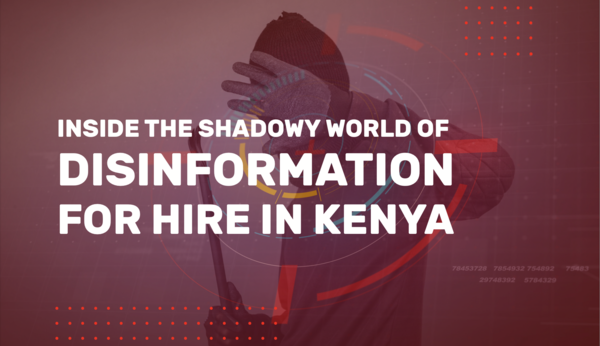In Kenya, Influencers Are Hired to Spread Disinformation

It’s a lucrative gig for content creators, who can make $10 to $15 a day by smearing journalists and activists on social media.
ON MAY 18 of this year, the insidious hashtag #AnarchistJudges appeared on Kenyan Twitter timelines. Apparently driven by a number of faceless bots, and retweeted by a series of sock puppet accounts, the deluge of tweets cast suspicion on both the competence and integrity of senior High Court of Kenya judges that had just shot down the Constitutional Amendments Bill of 2021. Many falsely claimed the judges were involved in narcotics dealings, bribery, and political partisanship. It quickly became one of the country’s top trending topics.
Such malicious, coordinated disinformation attacks are rapidly growing in Kenya, my Mozilla Foundation colleague Brian Obilo and I have found in a new investigation. Through a series of interviews with influencers involved in these campaigns, we reviewed evidence of a booming, shadowy industry of social media influencers for political hire in Kenya. Members of civil society and journalists alike have increasingly come under disinformation attacks that seek to silence them, muddy their reputations, and stifle their reach.
Twitter, which strongly influences the country’s news cycle and has exploitable features like its trending algorithm, has been central to these operations. Many of the accounts and individuals involved promote causes and political ideologies without disclosing that they are part of paid campaigns. Even some verified accounts are complicit.
